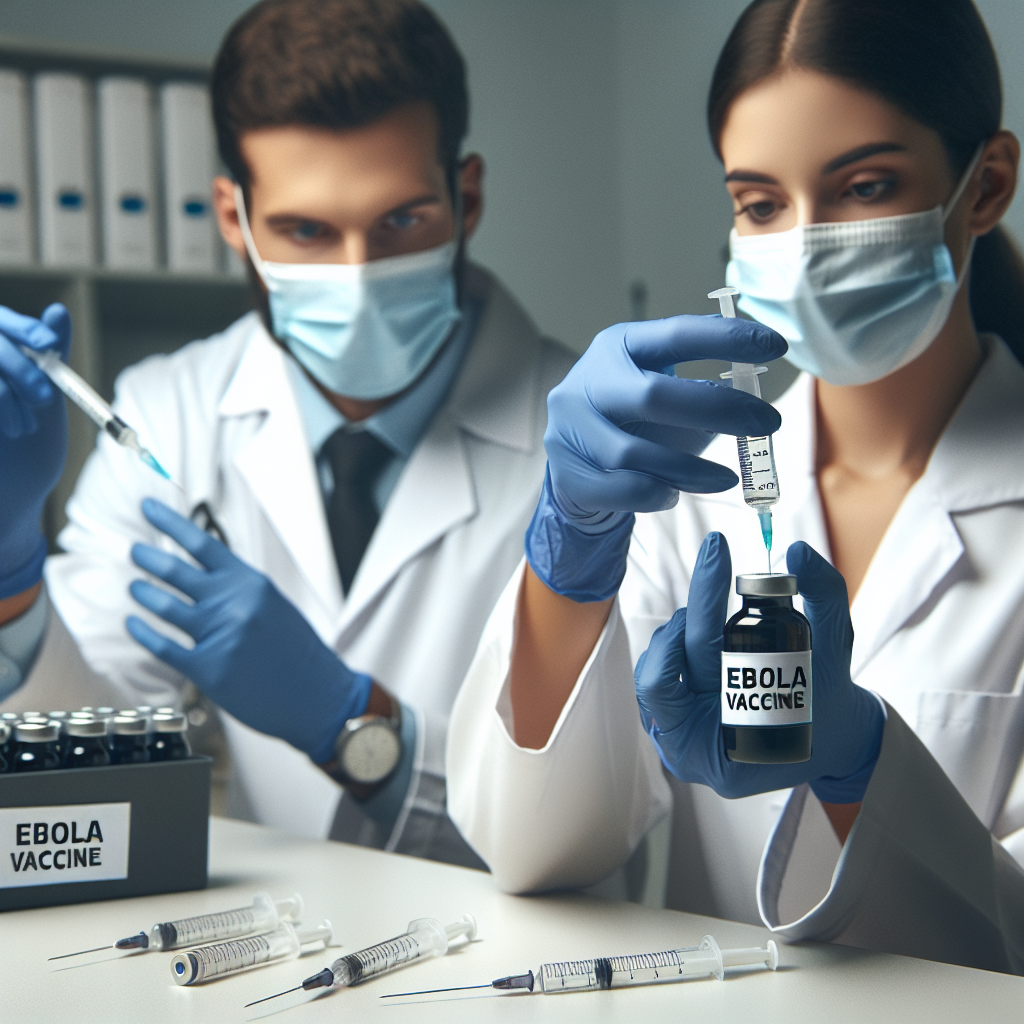Ebola Vaccination Campaign Launched in Kasai Province as DRC Battles Outbreak
The Ervebo vaccine has demonstrated safety and effectiveness against the Zaire ebolavirus species, which has been confirmed as the cause of the current outbreak.

- Country:
- Congo Dem Rep
Health authorities in the Democratic Republic of the Congo (DRC) have begun a vaccination campaign to contain the spread of Ebola virus disease in Bulape health zone, Kasai Province, where an outbreak was recently declared. The initiative, supported by the World Health Organization (WHO) and partners, is focusing on frontline health workers and individuals who have had direct contact with confirmed Ebola patients.
Vaccine Rollout in Hotspot Areas
An initial 400 doses of the Ervebo Ebola vaccine—drawn from the country’s emergency stockpile of 2 000 doses prepositioned in Kinshasa—were delivered to Bulape, one of the current hotspots of the outbreak. Additional consignments are expected in the coming days to reach other affected communities.
The campaign uses the ring vaccination strategy, a targeted approach proven effective in past Ebola outbreaks. Under this method, close contacts of confirmed cases, as well as contacts of those contacts, are vaccinated to form a protective buffer around infected individuals. Health workers and other frontline responders are also being vaccinated to reduce the risk of exposure.
The Ervebo vaccine has demonstrated safety and effectiveness against the Zaire ebolavirus species, which has been confirmed as the cause of the current outbreak.
Global Support for DRC’s Response
Recognizing the urgent need for more doses, the International Coordinating Group (ICG) on Vaccine Provision has approved the shipment of 45 000 additional vaccine doses to the DRC. WHO assisted the government in developing the request and is supporting the rollout alongside partners, including UNICEF.
As part of the rollout, vaccination teams are being trained in data collection, cold-chain management, and field coordination to ensure safe and effective delivery.
Treatment and Medical Care
Alongside vaccines, the government has also deployed the Mab114 monoclonal antibody therapy, a treatment developed for Ebola, to designated treatment centres in Bulape. This therapy has shown effectiveness in improving survival rates for Ebola patients and will form a key part of the clinical care response.
WHO Deployment and Community Engagement
The WHO has already deployed 48 experts to the region, including specialists in:
-
Disease surveillance
-
Clinical care
-
Infection prevention and control
-
Logistics
-
Community engagement
These experts are working with the Congolese Ministry of Health and partner organizations to strengthen outbreak response measures. Community engagement is being prioritised to ensure accurate information reaches residents, countering misinformation and building trust in vaccination and treatment efforts.
Regional Preparedness
Given the cross-border risks posed by Ebola, WHO is also working with neighbouring countries to strengthen surveillance systems and operational readiness. Training programmes are underway to improve rapid case detection, laboratory testing, and emergency response capabilities.
Risk Assessment
The WHO currently assesses the public health risk as:
-
High at the national level, given active transmission in Kasai Province.
-
Moderate at the regional level, due to potential cross-border spread.
-
Low at the global level, as international exportation of cases remains unlikely.
Looking Ahead
The combination of vaccination, effective treatment options, and rapid deployment of experts offers cautious optimism that the outbreak can be contained if communities continue to cooperate with health authorities. Past Ebola responses have shown that timely, coordinated action is critical to preventing wider spread.
The DRC has faced multiple Ebola outbreaks in recent decades, but the lessons learned—combined with access to proven vaccines and therapies—are now central to ensuring lives are saved and the virus brought under control.










